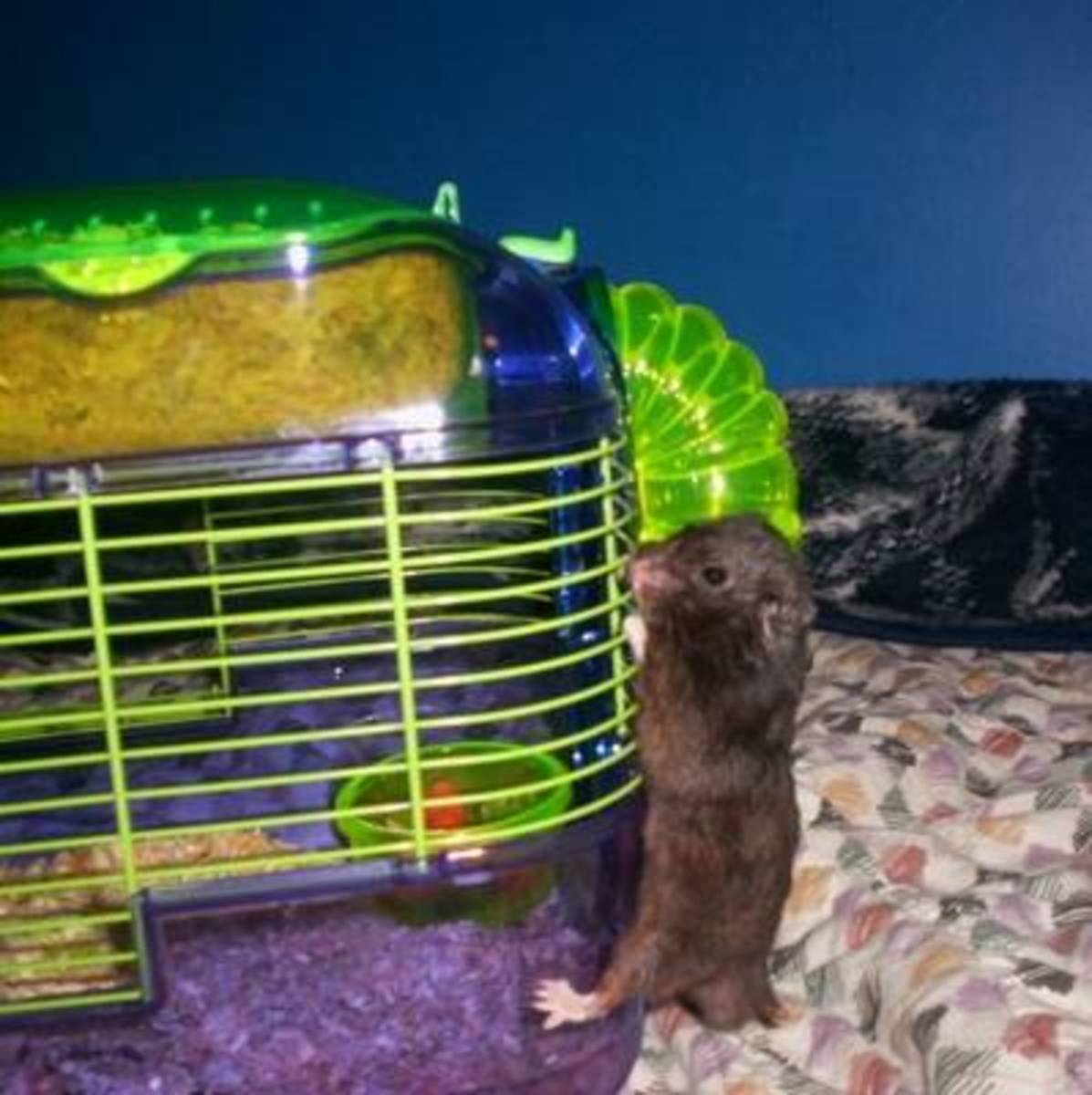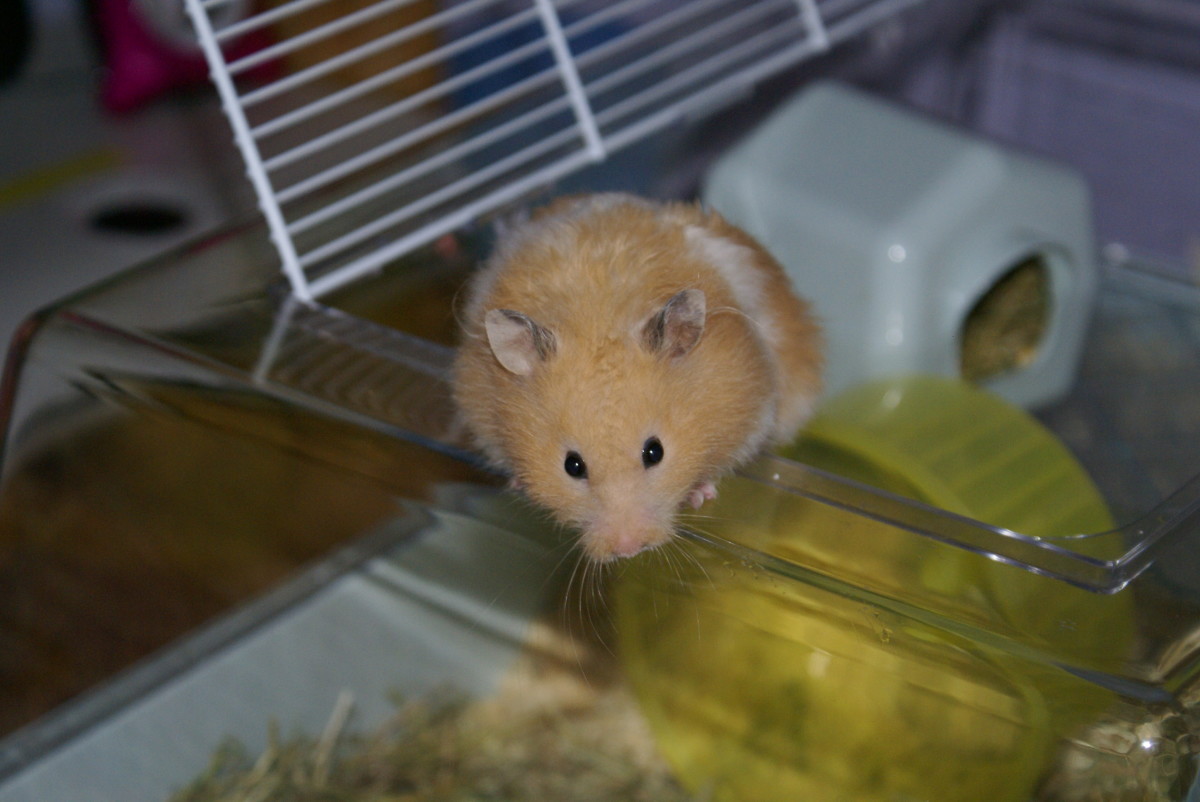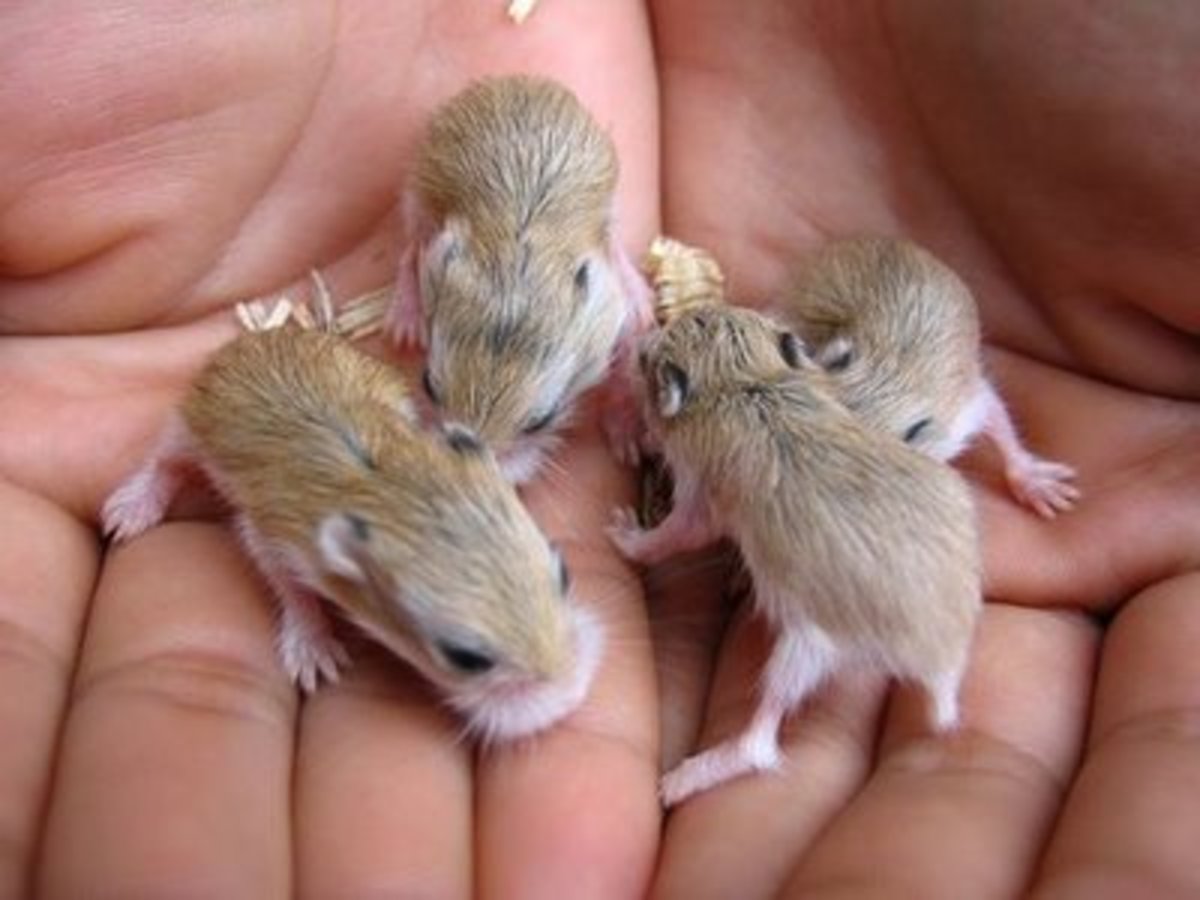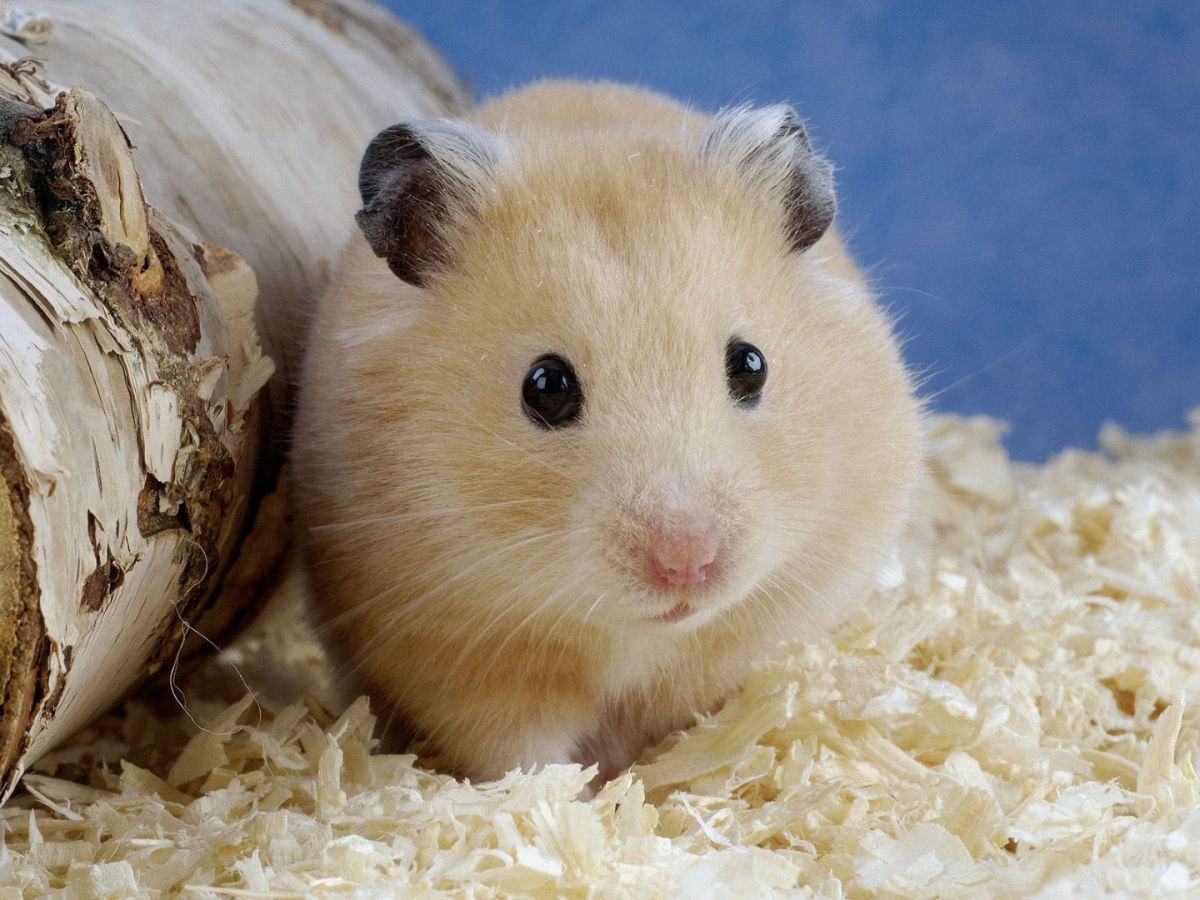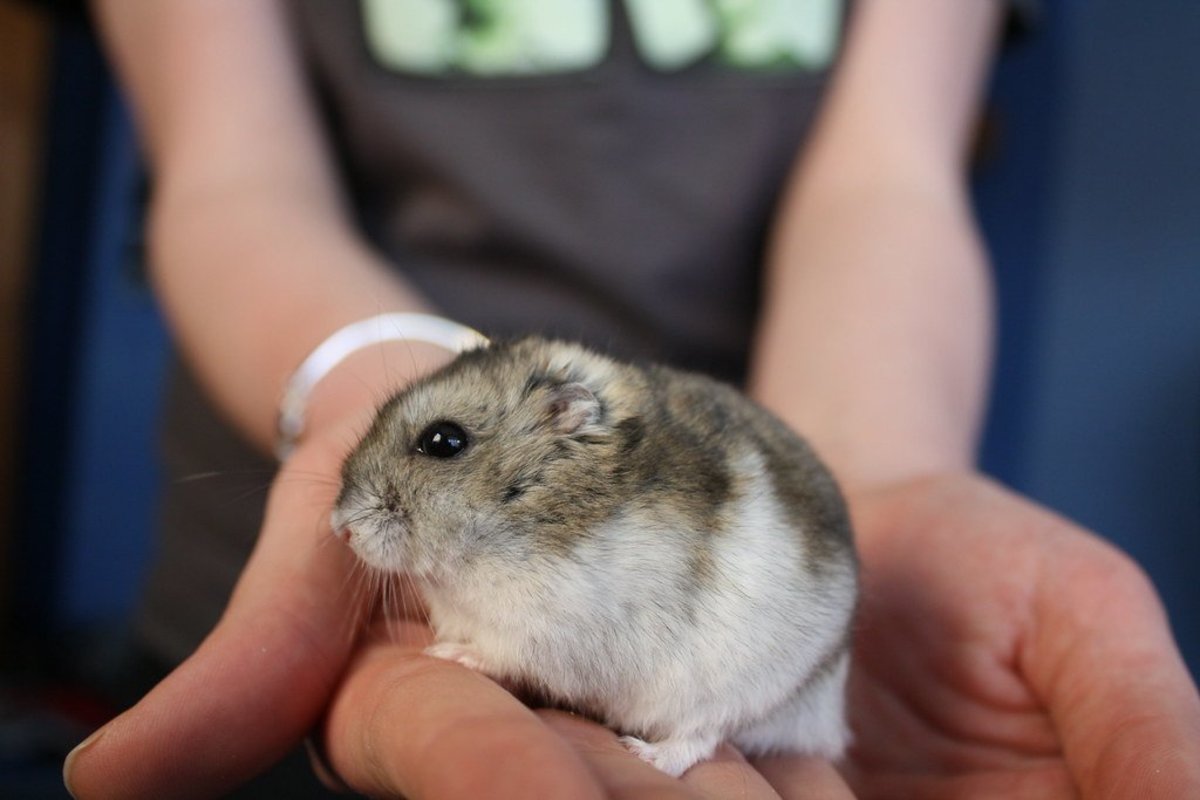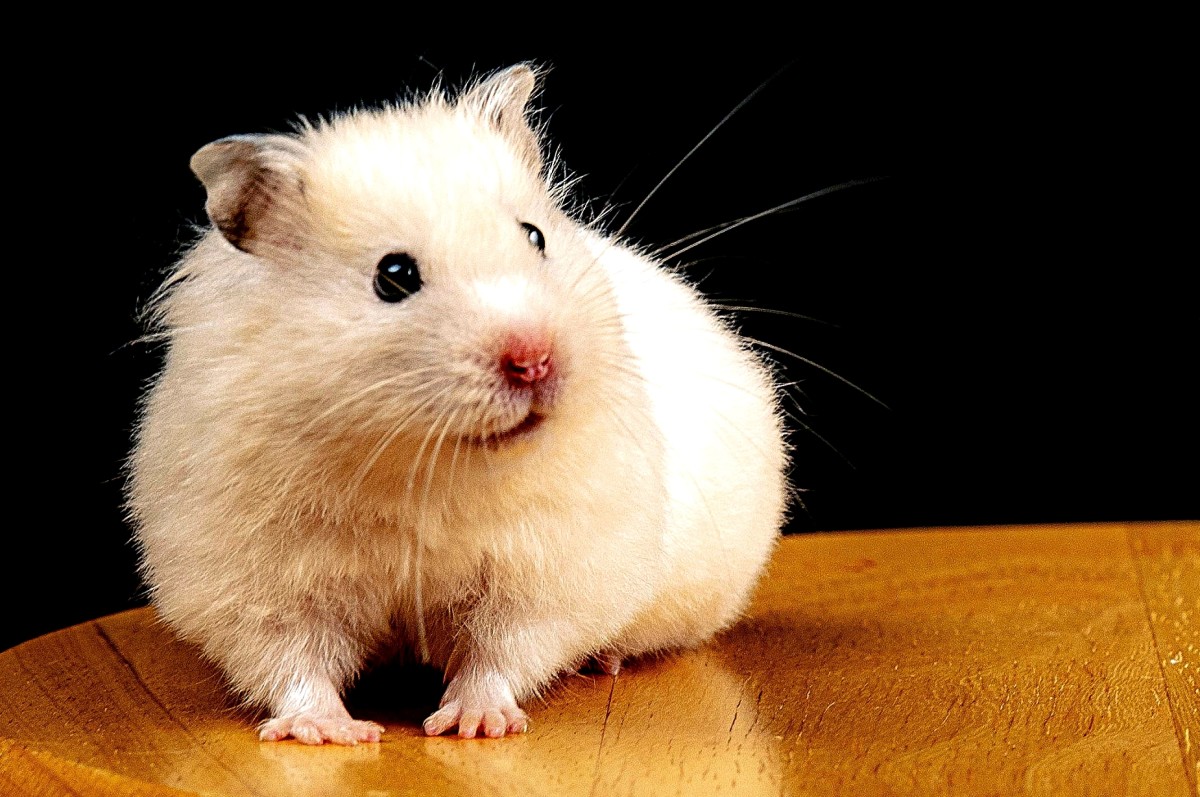Do Hamsters Make Good Pets?
Hamsters make brilliant pets!
Hamsters make fantastic pets because they are friendly, are easily cared for, cheap to keep and don't require a lot of room. Sadly my own Peppi is no longer with us, but I have many happy memories of my lovely hammy.
Here are some tips about keeping your hamster happy and friendly:
Allow your hamster some freedom every night (they sleep most of the day) and restrict his movements to just one room. The hamster balls are really good because you never lose your little critter, but they are still able to get about. Just be aware of the fact that they do tire easily when moving around in these plastic balls.
Hamsters must be creatures of habit because I noticed that my own hamster used to wake up at the same time every evening and bang on the top of his cage to be let out. He got to know what the sound of a potential food source was and knew that the scrunch of crackling paper was usually something that was going to taste good. One Christmas he stole an edible decoration from the tree (he had escaped from his cage that evening) and I found him dragging the cleverly unwrapped hamster sized chocolate ball back into his cage!
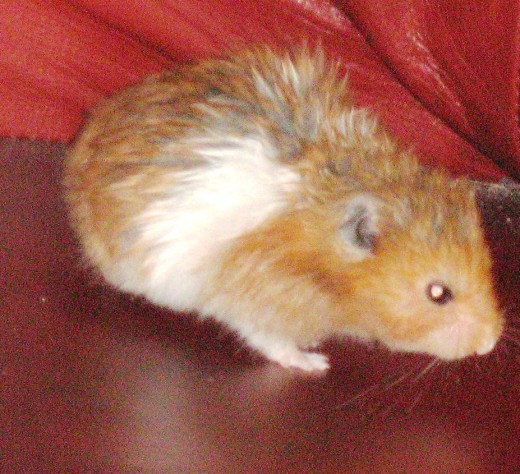

Important points to remember
Hamsters need cleaning out every week. I use a litter tray for my hamster and he uses it like a cat would do.The litter is very inexpensive and it goes a long way. You can buy it from your local pet store. Some people recommend using the ordinary cat litter to save on expense - in this case I would ask your local pet store for advice.
It is important to give them the proper bedding - I only use shredded tissue and wood shavings. The soft cotton bedding can be dangerous for hamsters because the fine threads can wrap around their delicate limbs and cause amputation. Find a quiet place for the cage, away from other household pets. This will allow your hamster to feel safe and will make it easier for you to handle him. The more you handle - the tamer the hammy!
An exercise wheel is essential to keep your hamster in tip top health and will compensate for him being cooped up in a small cage.
Sometimes when a new hamster is purchased not enough thought has gone into how they will be cared for. I have heard some sad stories when people lose them because of a simple oversight. It is best to read up as much as you can about hamsters before buying one.
One of the most important consideration is to provide him with as large a cage as you can afford. Hamsters will survive in a small cage, but are much happier and easier to handle if allowed a certain amount of room to move around in. You can purchase cages with the option to add tubes and living space that can be added to as your budget permits.
Sometimes hamsters can becomes ill if they have contracted a tummy bug from their parents or siblings (known as wet tail) or if they have simply become stressed due to beiing moved to a strange pace and strange smells. The best thing to do is to take some advice from your vet, who will normally charge a smaller fee for treating rodents.
Wet tail is normally treated by antibiotics and the hamster fed with boiled rice and rice water for 3 days. The best way to avoid travel induced wet tail is to allow the hamster the opportunity to get used to his new home before he is handled and given the peace and quiet that will allow him to feel at ease with his surroundings.
It may be helpful to remember that hamsters are fragile creatures and have to be handled carefully. These animals also have a relatively short life span so you must be realistic about the fact that you are not going to grow old together.
LLAP

